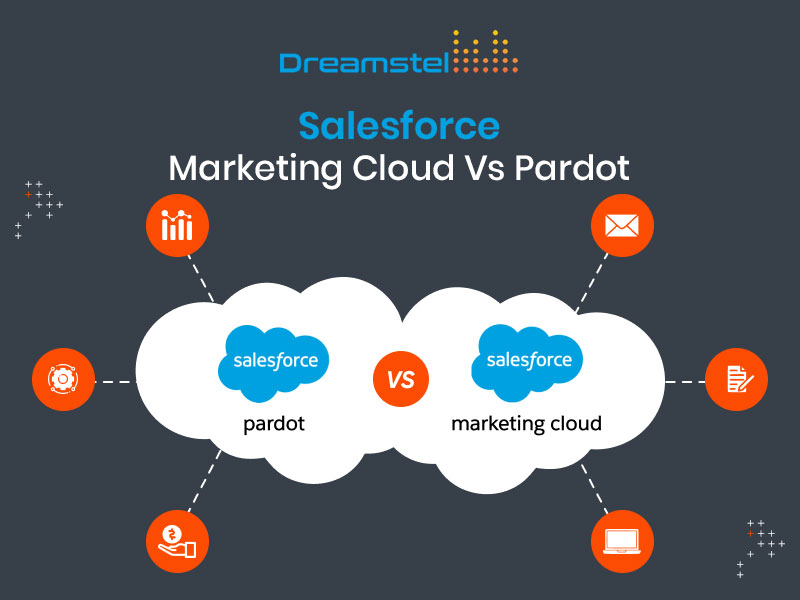
In today's fast-paced digital landscape, businesses rely heavily on marketing automation tools to streamline their marketing efforts and enhance customer engagement. Salesforce, a leading CRM platform, offers two powerful marketing automation solutions: Salesforce Marketing Cloud vs Pardot. Choosing the right platform for your business is crucial, as it can significantly impact your marketing strategies and overall success. In this article, we'll compare Salesforce Marketing Cloud and Pardot to help you make an informed decision.
Salesforce Marketing Cloud: Unleashing the Power of Personalized Marketing
Salesforce Marketing Cloud is a robust marketing automation platform designed for enterprises seeking highly personalized customer experiences. It provides a wide array of features, including email marketing, social media management, advertising, and analytics. One of its standout features is its ability to analyze customer data from various sources and create highly targeted marketing campaigns. With Marketing Cloud, businesses can deliver personalized content to their audience based on their preferences, behaviors, and interactions.
One of the significant advantages of Salesforce Marketing Cloud is its scalability. It can handle large volumes of data and support complex marketing campaigns, making it ideal for large enterprises with diverse customer bases. Additionally, its integration capabilities with other Salesforce products and third-party applications offer a seamless experience for businesses looking to consolidate their marketing and CRM efforts.
Pardot: Simplifying Marketing Automation for Small and Medium Businesses
Pardot, on the other hand, is tailored for small and medium-sized businesses that require a user-friendly marketing automation solution. It focuses on lead generation, nurturing, and scoring, making it an excellent choice for businesses aiming to convert prospects into customers effectively. Pardot's intuitive interface and automation features allow businesses to create targeted email campaigns, track customer interactions, and measure campaign performance easily.
One of Pardot's standout features is its lead scoring and grading capabilities, enabling businesses to prioritize leads based on their engagement levels and potential for conversion. This functionality helps sales teams focus their efforts on leads that are more likely to convert, thereby increasing the overall efficiency of the sales process.
Choosing the Right Solution for Your Business
The choice between Salesforce Marketing Cloud and Pardot ultimately depends on your business requirements and goals. If you're a large enterprise looking for a comprehensive solution to manage complex marketing campaigns and deliver highly personalized experiences, Salesforce Marketing Cloud is the ideal choice. Its advanced features and scalability make it suitable for businesses with diverse marketing needs and a large customer base.
On the other hand, if you're a small or medium-sized business aiming for simplified lead generation and nurturing processes, Pardot offers a user-friendly interface and essential automation features. Its focus on lead scoring and grading can significantly enhance your sales team's productivity and help you identify high-quality leads efficiently.
conclusion:
both Salesforce Marketing Cloud and Pardot are powerful marketing automation solutions catering to different business needs. By carefully evaluating your requirements and considering factors such as the complexity of your marketing campaigns, target audience, and budget, you can choose the right platform to elevate your marketing strategies and drive business growth.